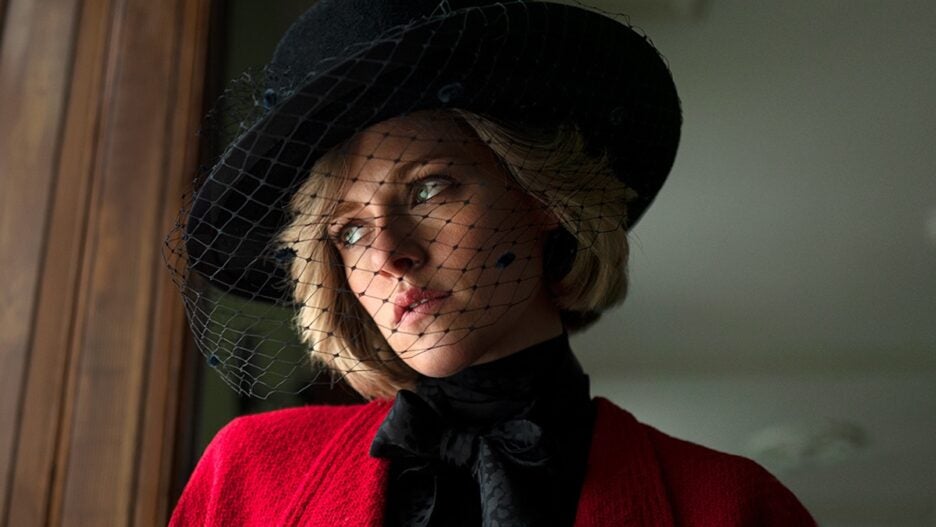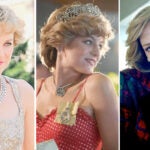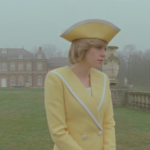‘Self-pitying, spoilt and brattish’…
Venice 2021: Chilean director Pablo Larrain’s film has the potential to become a gothic, almost camp classic

Neon
Self-billed as “a fable from a true tragedy,” Pablo Larrain’s “Spencer,” which had its world premiere at the Venice Film Festival on Friday, homes in on the unraveling of Diana, Princess of Wales, over three bitter days around Christmas in the Queen’s country house at Sandringham in Norfolk. Hinging (or unhinging) on a major performance from Kristen Stewart, the movie itself unfurls in a torrent of ideas and madness, some of it brilliant, some of it quite silly.
Chilean director Larrain came to international prominence with excellent films commenting on the effect of the disturbing and violent politics of the Pinochet regime in his country — and just as he skewered the myth of Kennedy’s Camelot in his 2016 Venice film “Jackie,” with Natalie Portman, he doesn’t spare the British establishment here. He depicts the royal court as a place of ruthless treachery dressed up in eccentricity and tradition, with Diana as the latest in a long line of victims that runs all the way back to Anne Boleyn.
How true any of it is will concern as many people as it delights, particularly in the U.K. But Larrain, working from Steven Knight’s script, is clearly going for something more classical here than can be found in an episode of the giant Netflix series “The Crown.” “Spencer” creates an intense, giddy spectacle with Shakespearean or indeed Racinian ambitions.
It begins on Christmas Eve in the early 1990s, as Sandringham prepares for the arrival of the royal party. A prominent notice in the kitchen warns workers they should “Keep the Noise to a Minimum: They Can Hear You,” and the notion of the walls having ears and eyes is a constant, perhaps over-stressed, theme of the film.

Diana herself is driving up in a racing green Porsche and gets lost, stopping to ask directions in a local greasy-spoon cafe (fish and chips cost £2.70) where the diners and staff soon fall silent and agape at their illustrious visitor.
It is of course an early metaphor for Diana’s more existential sense of loss as she heads to the palace accompanied by a dissonant trumpet score, composer Jonny Greenwood twisting the traditional sounds of heraldry into something creepy and unsettling. Larrain’s overhead shot of Diana’s approach turns Sandringham into a haunted house, or the Overlook Hotel from “The Shining,” rather than a royal residence. With its all-seeing walls and freezing rooms, it’s a place that will send the Princess into a frenzy with its rules and customs and silences.
Diana is stalked by visions of Anne Boleyn (from whom the Spencer family are distantly descended) and she’s compelled to read a tome about Henry VIII’s beheaded wife when she finds it placed in her rooms. These apparitions are startling yet also faintly ridiculous, although in her fragile performance, Stewart always sells them to the audience.
While there are some notable supporting roles for Timothy Spall, Sean Harris and Sally Hawkins, it’s Stewart’s film. She gets the doe-eyed, pitying tilt of the head and the little posh girl voice down pretty well, but this is no impression — it’s more an interpretation of a classic role, bringing layers of real human complexity to a figure who, for all the mythology that surrounds her, still looms large in the British and global conscience.

This Diana isn’t the likable People’s Princess or Queen of Hearts whom the public adored. We get none of that. Instead, she’s prickly, self-absorbed and self-pitying, spoiled and brattish; but while the cold seeps into every room, we do warm to her obvious affection for her children and their love for her.
Larrain does open up his shots for some of the dinner scenes and the below-stairs bustle, but he prefers to return to claustrophobic close-ups, like mini-plays within the main drama. There’s a tender, candlelit scene with Diana and her boys (Jack Nielen as William, Freddie Spry as a cute, confused Harry) pretending to be her soldiers; several tense exchanges with Spall’s threatening, controlling equerry; and trusting confessions with her favorite dresser, Maggie, played by Hawkins.
“This dress doesn’t fit,” she tells Maggie, who lays out a prescribed outfit (props to Jacqueline Durran’s superb costume work) for each occasion, from breakfast to church to dinner. “Have you tried it on?” asks the dresser. “No,” says the Princess. “I mean it doesn’t fit my mood.”
The dialogue is rather on-the-nose, and practically every sentence feels aware of itself as a pronouncement of era-defining depth and acuity. “Beauty is useless, beauty is clothing”; “There is no future here, only past and present’; “I watch to make sure others do not see.”

And there are some scenes that risk teetering into unintentional comedy, such as the fantasy sequence of Diana’s pearls falling into her green soup, which she will rush off and vomit into the royal downstairs loo. There’s a conversation with Spall in a huge fridge, surrounded by cakes and hams and bits of chicken; the corgis filing out of their own Rolls Royce; the family gathered round the telly to watch the Queen’s Christmas Speech; and perhaps the less said the better about a scene with Diana talking to one of the royal pheasants (“beautiful birds but not too bright”) and envying its plumage because “you can always wear the same outfit.”
There are precious few grace notes here, nothing to endear this flailing princess to us and practically no interaction with anyone else in the family, apart from a couple of withering observations from Stella Gonet’s Queen Elizabeth. There is a chilling showdown with Jack Farthing’s Prince Charles, the couple separated by the length of a snooker table, accusing each other of “being delayed by someone” in reference to their mutual infidelities. Diana, throughout, is particularly upset that he has given the same pearl necklace Christmas present to “her,” meaning of course his longtime mistress, Camilla Parker Bowles.
Far from the laughable disaster of Oliver Hirshbiegel’s 2013 “Diana” starring Naomi Watts, Larrain’s “Spencer” will cause a sensation yet has also plenty of craft to admire, in Greenwood’s swirling and tumultuous score and Claire Mathon’s textured cinematography, here framing what you could call another portrait of a lady on fire.
With its Grand Guignol and horror movie tropes, Spencer is probably more fun than a somber festival premiere can allow it to be. And despite the high seriousness (even the taboo) of it for many, it could well grow into a gothic, almost camp classic. It’s certainly a royal biopic like no other and, losing her head like Anne Boleyn before her, Kristen Stewart gives it her all.

